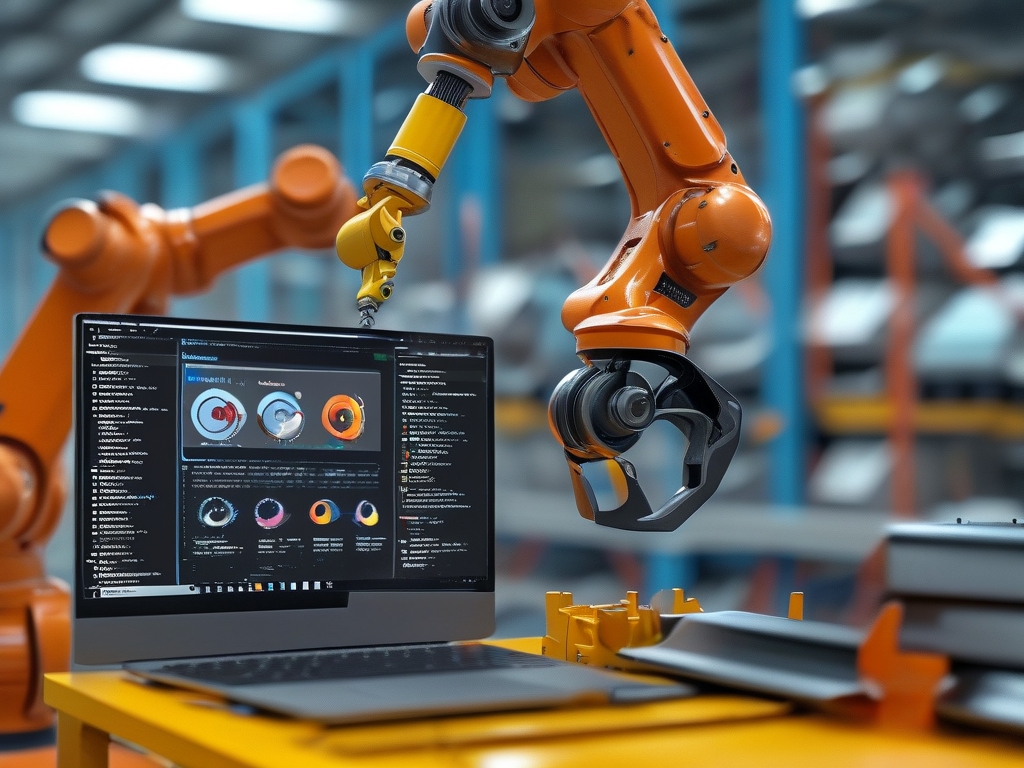In today’s rapidly evolving technological landscape, careers in engineering and automation are gaining unprecedented attention. Among these roles, control algorithm engineers have emerged as critical players in industries ranging from autonomous vehicles to industrial robotics. But is this profession truly "in demand" or "lucrative"? Let’s dive into the factors shaping its appeal and long-term viability.
What Does a Control Algorithm Engineer Do?
Control algorithm engineers design, develop, and optimize algorithms that enable systems to operate autonomously or with minimal human intervention. Their work spans industries such as:
- Automotive: Developing algorithms for self-driving cars, adaptive cruise control, and energy-efficient powertrains.
- Aerospace: Creating flight control systems for drones and aircraft.
- Manufacturing: Designing robotic systems for precision assembly and quality control.
- Consumer Electronics: Improving stability in camera gimbals or battery management in smartphones.
These professionals combine expertise in mathematics, computer science, and domain-specific knowledge to solve complex problems. Their algorithms ensure systems respond accurately to dynamic environments, making their role indispensable in automation-driven sectors.
Why Control Algorithm Engineers Are in High Demand
-
Automation and AI Boom:
The global push toward automation, Industry 4.0, and AI integration has skyrocketed demand for control systems. For instance, the autonomous vehicle market alone is projected to grow at a CAGR of 13.3% from 2023 to 2030 (Grand View Research). This growth directly translates to opportunities for algorithm specialists.
-
Cross-Industry Applications:
Control algorithms are not limited to tech giants. Industries like healthcare (surgical robots), agriculture (autonomous tractors), and energy (smart grid systems) all require these skills. This versatility ensures engineers can pivot across sectors, reducing career stagnation risks. -
Skill Scarcity:
Mastery of control theory, linear algebra, and programming languages like Python, C++, or MATLAB is rare. Employers often struggle to find candidates who blend theoretical knowledge with hands-on coding experience, leading to competitive salaries.
Salary Trends and Career Growth
According to Glassdoor, the average annual salary for control algorithm engineers in the U.S. ranges between $95,000 and $150,000, with senior roles exceeding $180,000. In tech hubs like Silicon Valley or Shenzhen, compensation packages often include stock options and bonuses.
Career progression typically follows this path:
- Junior Engineer: Focus on algorithm implementation and testing.
- Senior Engineer: Lead projects and optimize system performance.
- Principal Engineer/Architect: Design high-level control strategies for entire product lines.
- Management: Transition to roles like Technical Director or R&D Head.
Challenges and Considerations
While the field is promising, aspiring engineers should be aware of potential hurdles:
- Rapid Technological Changes: Staying updated with tools (e.g., reinforcement learning, ROS) is essential.
- Interdisciplinary Demands: Collaboration with hardware engineers, data scientists, and product managers is common, requiring strong communication skills.
- Industry-Specific Risks: Sectors like automotive face cyclical downturns, though diversification mitigates this.
Future Outlook
Emerging technologies will further amplify demand:
- Edge Computing: Low-latency control systems for IoT devices.
- Quantum Control Algorithms: Pioneering applications in quantum computing.
- Ethical AI: Developing fail-safes for autonomous systems to prevent malfunctions.
Governments and corporations are also investing heavily in automation. For example, the EU’s “Digital Compass” plan aims to deploy 20,000 secure IoT-enabled factories by 2030, creating thousands of algorithm engineering roles.
How to Break Into the Field
- Educational Foundation: A degree in electrical engineering, computer science, or robotics is ideal. Advanced degrees (Master’s/PhD) enhance credibility for research-focused roles.
- Hands-On Experience: Internships or projects involving PID controllers, Kalman filters, or simulation tools (Simulink) are invaluable.
- Certifications: Certifications in machine learning (e.g., TensorFlow) or embedded systems (e.g., ARM Cortex) can differentiate candidates.
Control algorithm engineering is undeniably a lucrative and future-proof career. Its intersection with cutting-edge technologies, coupled with cross-industry demand, ensures long-term relevance. While the learning curve is steep, the rewards—financial stability, intellectual challenge, and societal impact—make it a compelling choice for STEM professionals. As automation reshapes the global economy, control algorithm engineers will remain at the forefront of innovation.



